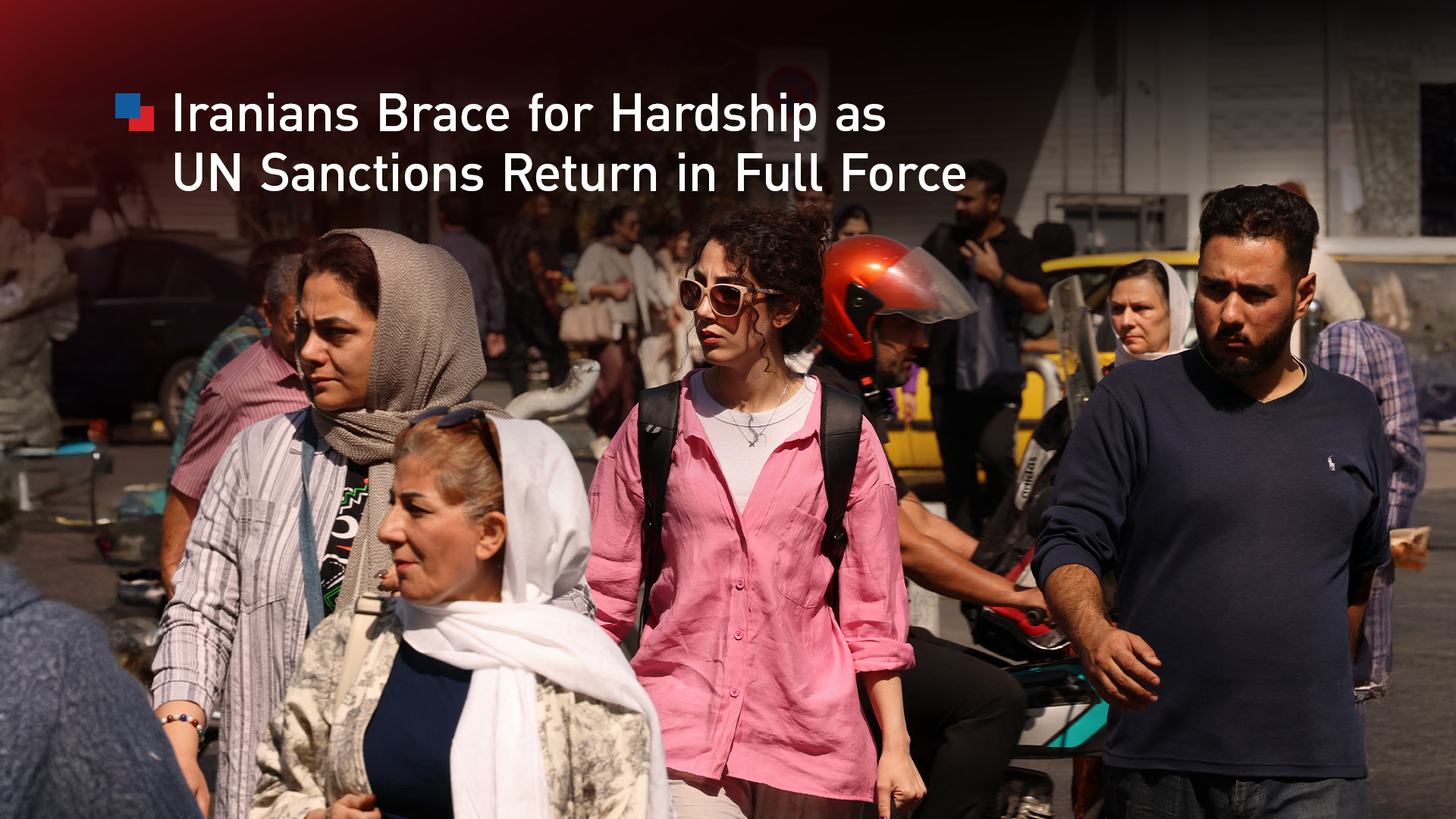Rial Plummets, Prices Soar as Iranians Reel from UN Sanctions
From food to medicine, renewed restrictions squeeze households already struggling with inflation.

ERBIL (Kurdistan24) — Iranians voiced growing anxiety on Sunday as United Nations sanctions against Tehran returned in full force, fueling a sharp depreciation of the rial and surging consumer prices.
The measures, reinstated after Britain, France, and Germany triggered the so-called “snapback” mechanism under the 2015 nuclear accord, bar international dealings related to Iran’s nuclear and ballistic missile activities.
Tehran condemned the sanctions as “unjustifiable,” while its foreign ministry urged countries to resist enforcing them, vowing to defend Iran’s “national rights and interests.”
For many citizens, however, the impact was immediate and severe. Helia, a 33-year-old graphic designer in Tehran, told AFP that the furniture she was buying for her new home jumped in price within just three days.
“Even before the dollar went up, prices were rising. From meat to taxis, life is already harder,” she said.
Ordinary Iranians fear that daily life will become unbearable. “We’ll be ruined. Ordinary people really might not be able to live the way they do now,” said Nassim Campani, a 56-year-old researcher.
A 19-year-old student, Mehrshad, warned that the sanctions would leave Iran “economically and politically isolated.”
President Masoud Pezeshkian said Washington had offered Tehran only a temporary reprieve in exchange for surrendering its enriched uranium stockpile, a proposal he dismissed as “unacceptable.” Yet some, like 70-year-old author Farid Moradi, faulted the government’s refusal to compromise.
“At some point, it should have given concessions and tried to gain some in return,” he told AFP.
The economic fallout was clear as the rial plunged to about 1.12 million to the US dollar on the black market before recovering slightly to 1.1 million. Moradi said one kilogram of meat now costs 10 million rials (almost $10) — a crippling price for families surviving on minimum wages.
Young Iranians also feel squeezed out of their passions and futures. Amir-Abbas, a 19-year-old student wearing an Iron Maiden T-shirt, lamented that his guitar had risen tenfold in price since his purchase, largely due to import restrictions.
“It was 30 million rials when I bought it; now it’s 300 million,” he said, adding that the same pressures apply to medicine.
Others worry the sanctions will worsen social conditions. “Prices, the dollar, gold — everything will rise. People won’t be able to live a normal life,” Campani warned. “Crime and child labor may increase… I’m even considering leaving again.”
Still, amid the hardship, some cling to resilience. “We’ve lived through the dollar at 100,000 rials, now it’s 1,100,000 rials, and we’re still standing. We live on hope,” Helia told AFP with a smile.
The sanctions stem from the unraveling of the 2015 Joint Comprehensive Plan of Action (JCPOA), a landmark agreement between Iran and world powers aimed at curbing Tehran’s nuclear activities in exchange for sanctions relief.
The United States unilaterally withdrew from the deal in 2018 under President Donald Trump, reimposing heavy sanctions that severely restricted Iran’s access to global markets. European powers sought to salvage the accord, but years of strained diplomacy, rising uranium enrichment, and regional tensions have left the deal on the verge of collapse.
The “snapback” mechanism invoked by Britain, France, and Germany restores the UN sanctions originally lifted under the JCPOA, marking a dramatic escalation in Iran’s isolation.
The return of UN sanctions is also likely to heighten already fragile regional dynamics. Iran’s adversaries in the Gulf, alongside Israel and the United States, view Tehran’s nuclear ambitions and its network of allied militias across the Middle East as a strategic threat.
With tensions simmering in the Red Sea, Lebanon, Syria, and Iraq, observers warn that the new sanctions regime could deepen Iran’s confrontation with its rivals while compounding the hardship faced by its people.